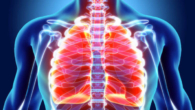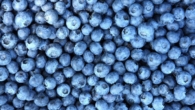
Named products that help you lose weight
0
Plant foods can affect gut flora, brain and appetite Foods with a large amount of indigestible fiber are especially useful. What they are and what they do to the body.
Fiber consumed with food, for example from vegetables and fruits, not only stimulates digestion, but also helps against food cravings and obesity, as shown by clinical research.
“Fiber changes the composition of our gut flora and the signals it sends to our brain. This, in turn, affects reward signals in the brain and reduces our desire to eat. Prebiotics (indigestible fiber) can help obese people lose weight,” says the gastroenterologist.
Indigestible fiber acts as a prebiotic, promoting the growth and activity of beneficial bacteria in our intestines.
They are found mainly in plant-based foods, such as:
- Onions
- Scallions
- Artichokes
- Wheat
- Bananas
- Chicory root
“Our gut flora, in turn, influences certain brain functions and behaviors: the gut and brain communicate with each other through metabolic products such as short-chain fatty acids and peptide hormones, which can cross the blood-brain barrier.”
Studies show that gut flora can influence our appetite, mood, and even our motivation to exercise.
What do prebiotics do in the body?
A group of scientists investigated the effects of plant fiber on eating behavior and the brains of overweight people. In the study, 59 young people with mild obesity (BMI 25 to 30) were given 30 grams of the prebiotic inulin, derived from chicory, or a placebo daily for 14 days.
One group first received the prebiotic, then the placebo, and the second group received the drugs in the reverse order.
Using functional magnetic resonance imaging (fMRI), scientists recorded the brain activity of test subjects while showing them images of various healthy and unhealthy foods and products. Subjects were asked to indicate how much of this food they would like to eat after the experiment.
Brain reacts less to food stimuli
There were differences in brain activity: regions reward-related areas of the brain were less active in the evaluation of foods presented after subjects consumed prebiotic fiber.
As a result, they generally expressed less desire to eat in the survey than after taking a placebo. However, this did not change the choice of food consumed in the future.
“The stool analyses showed an effect on the intestinal flora. Among other things, after the introduction of prebiotics, the composition of the so-called firmicutes changed towards a higher number of lactobacilli. In addition, there was an increase in the number of actinobacteria, which produce short-chain fatty acids,” the doctor comments on the study.
However, the researchers no longer detected such fatty acids in the stool or in the blood of the subjects after taking prebiotics. They also did not detect changes in the blood regarding intestinal hormones and markers of inflammation and sugar metabolism.
Do prebiotics lead to a healthier diet?
The results show that high doses of dietary prebiotics can influence our eating behavior and appetite. They alter our gut flora so that their mediators and signals dampen our reward system's response to high-calorie and unhealthy food stimuli.









Leave a Reply